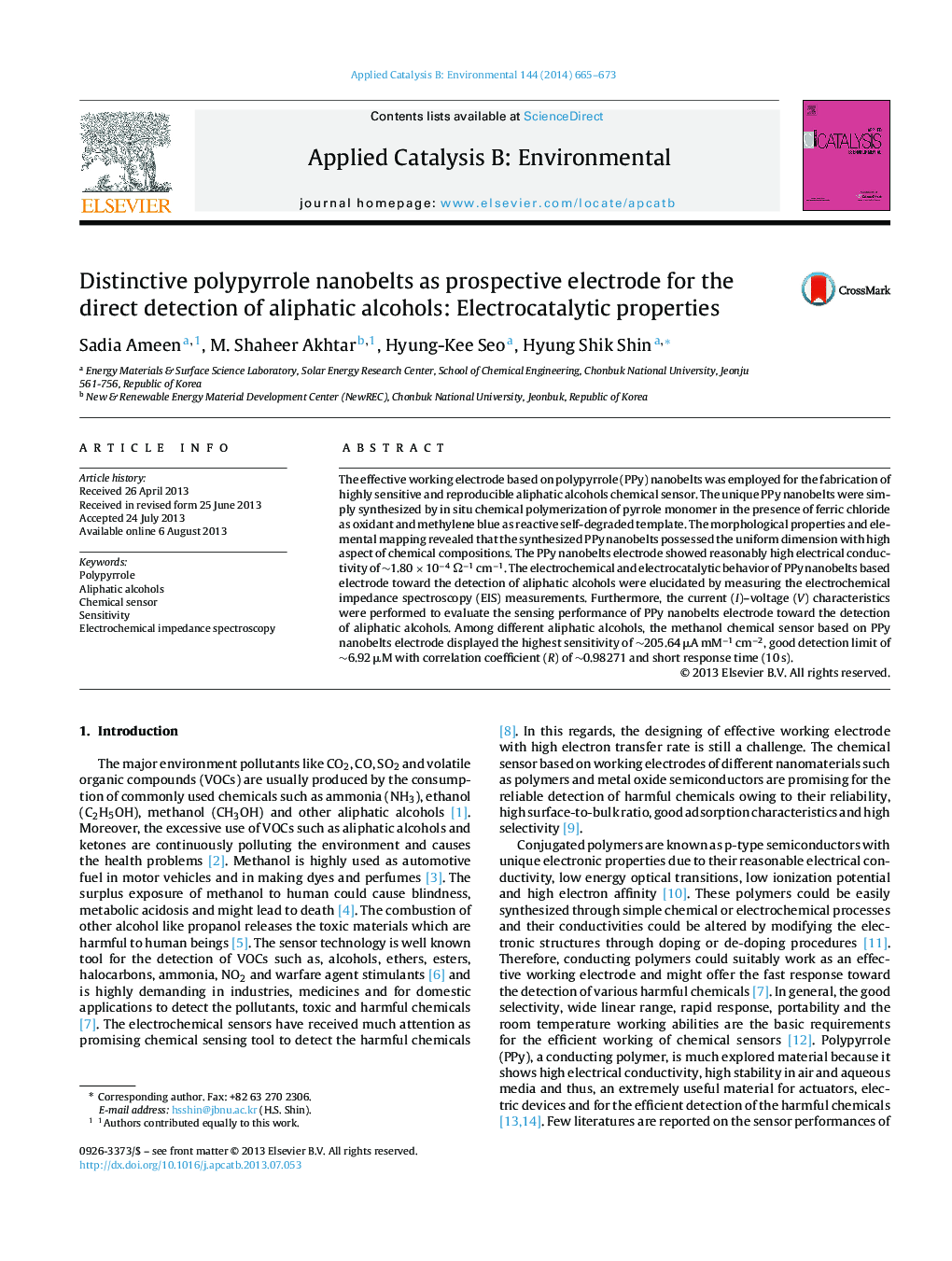| Article ID | Journal | Published Year | Pages | File Type |
|---|---|---|---|---|
| 45405 | Applied Catalysis B: Environmental | 2014 | 9 Pages |
•Novel polypyrrole (PPy) nanobelts electrode is used for aliphatic alcohol chemical sensor.•Unique PPy nanobelts show good electrocatalytic activity to alcohols.•The reasonably high electrical conductivity of ∼1.80 × 10−4 Ω−1 cm−1 is observed.•Methanol sensor shows good sensing response with sensitivity of ∼205.64 μA mM−1 cm−2.
The effective working electrode based on polypyrrole (PPy) nanobelts was employed for the fabrication of highly sensitive and reproducible aliphatic alcohols chemical sensor. The unique PPy nanobelts were simply synthesized by in situ chemical polymerization of pyrrole monomer in the presence of ferric chloride as oxidant and methylene blue as reactive self-degraded template. The morphological properties and elemental mapping revealed that the synthesized PPy nanobelts possessed the uniform dimension with high aspect of chemical compositions. The PPy nanobelts electrode showed reasonably high electrical conductivity of ∼1.80 × 10−4 Ω−1 cm−1. The electrochemical and electrocatalytic behavior of PPy nanobelts based electrode toward the detection of aliphatic alcohols were elucidated by measuring the electrochemical impedance spectroscopy (EIS) measurements. Furthermore, the current (I)–voltage (V) characteristics were performed to evaluate the sensing performance of PPy nanobelts electrode toward the detection of aliphatic alcohols. Among different aliphatic alcohols, the methanol chemical sensor based on PPy nanobelts electrode displayed the highest sensitivity of ∼205.64 μA mM−1 cm−2, good detection limit of ∼6.92 μM with correlation coefficient (R) of ∼0.98271 and short response time (10 s).
Graphical abstractFigure optionsDownload full-size imageDownload as PowerPoint slide
